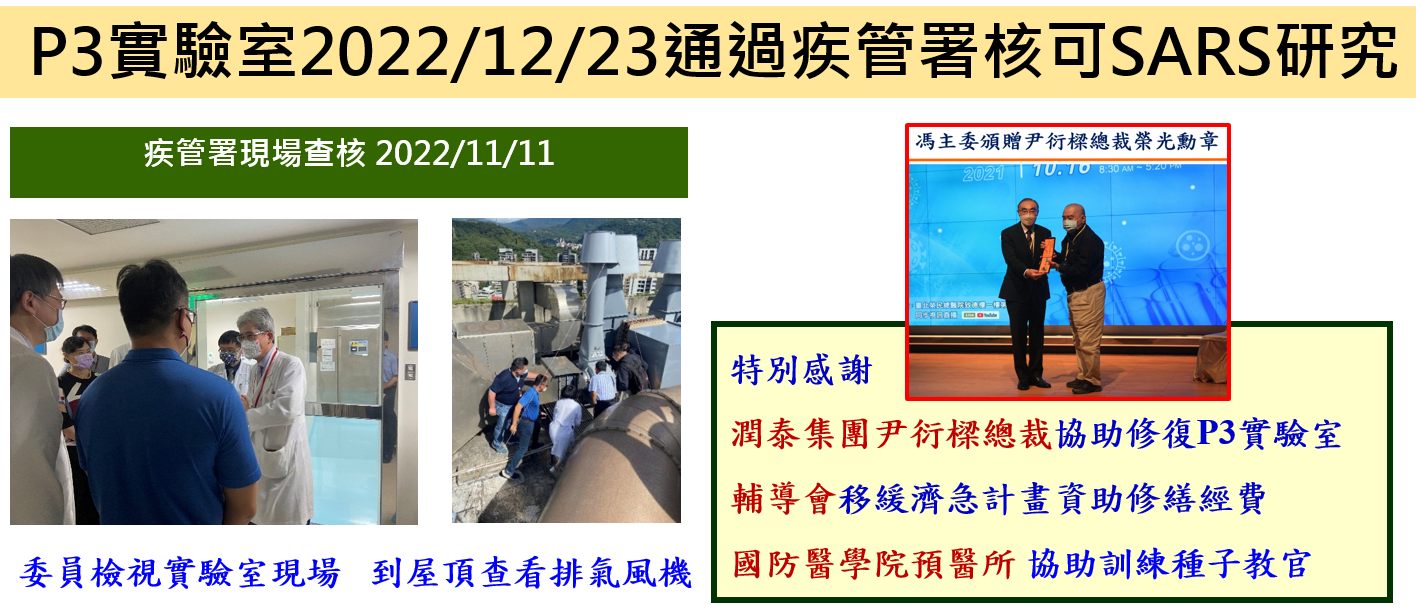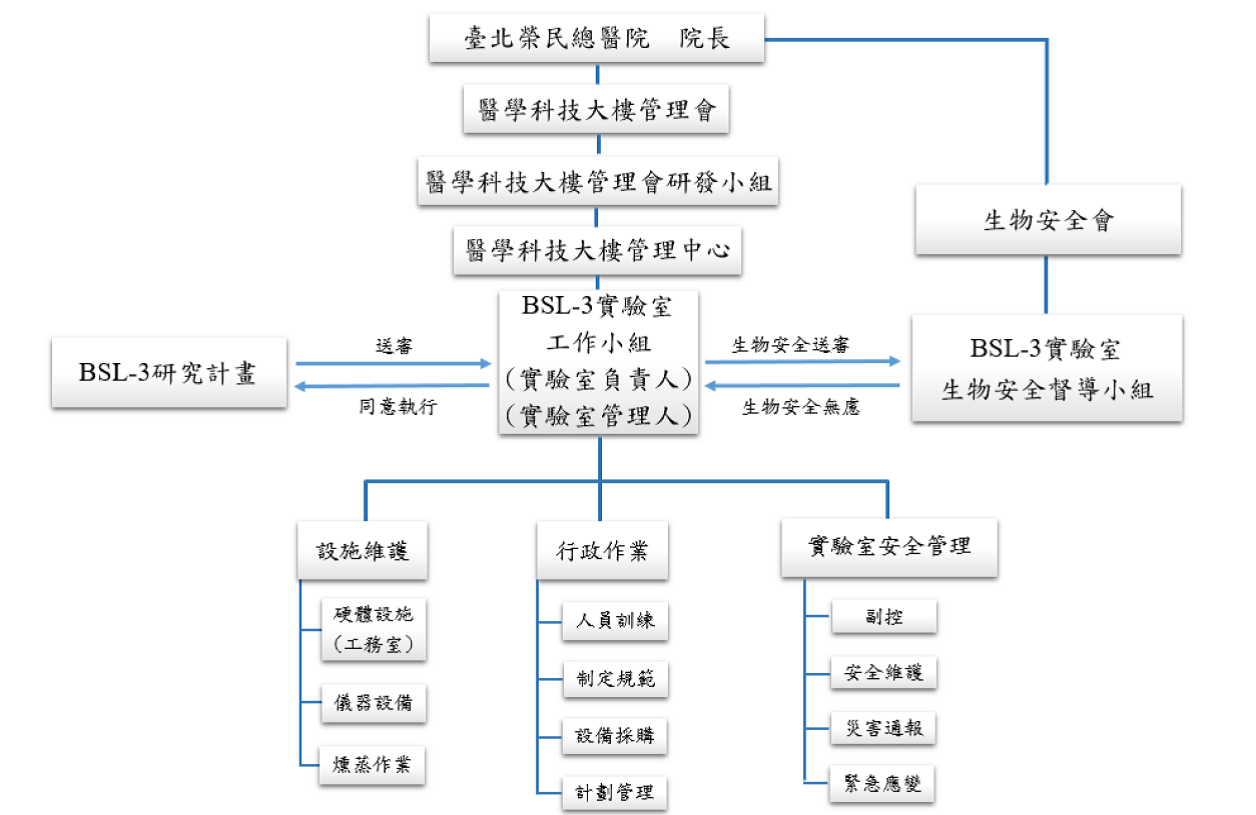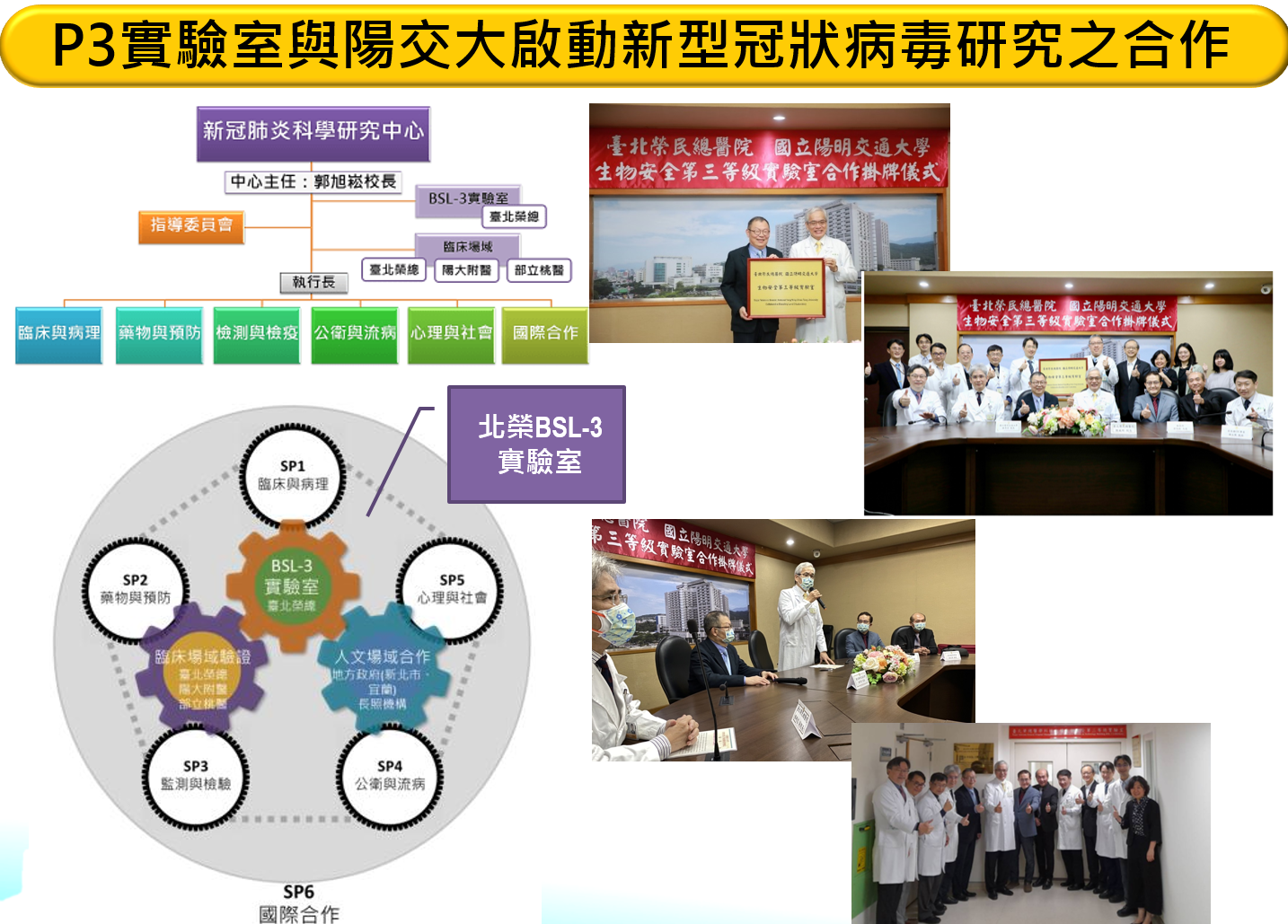|
Introduction
A Biological Safety Level 3 (BSL-3) laboratory is a highly specialized facility designed to handle and contain potentially hazardous and infectious biological agents and microorganisms that can cause serious or potentially lethal infections. BSL-3 labs are used for research on infectious diseases such as SARS, tuberculosis, anthrax, and influenza. The BSL-3 lab in Taipei Veterans General Hospital is equipped with special safety features such as negative air pressure, HEPA filters, and airlocks to prevent the release of microorganisms into the environment. Personnel working in these labs must follow strict safety protocols, including the use of personal protective equipment, to prevent exposure to infectious agents. The BSL-3 laboratory is located in the Medical Science and Technology Building, and can be used as a laboratory for handling Risk Group 3 (RG-3) microorganisms that pose biological hazards. In response to the public health challenges caused by emerging viruses and pathogens, maintaining a qualified and safe BSL-3 laboratory is necessary for researching viruses and pathogens. We follow national policies and conduct research on RG-3 microorganisms, including isolating emerging pathogens, analyzing pathogen genetic sequences, and developing diagnostic reagents, vaccines, and drugs. This laboratory was inspected and approved by the Centers for Disease Control (CDC) on April 11, 2022, and was authorized by the CDC to conduct SARS research on December 23, 2022.
BSL-3 laboratory major aspects include: Facility: The laboratory were designed to meet the stringent safety standards required for handling hazardous biological agents. This includes appropriate ventilation, air filtration, and waste management systems, as well as physical barriers such as negative pressure rooms and access controls to prevent unauthorized entry.
Equipment and instrumentation: The laboratory are equipped with specialized instruments and equipment that meet the required safety standards and are appropriate for handling hazardous biological agents. This includes equipment for sample handling, analysis, and storage, as well as specialized biosafety cabinets and other containment devices.
Security and access control: Access to the laboratory are strictly controlled to prevent unauthorized entry.
Training and expertise: All laboratory personnel must receive extensive training on proper handling and disposal of hazardous biological agents, as well as on biosafety protocols and emergency procedures. In addition, the laboratory must have access to expert personnel who can provide guidance on biosafety issues, risk assessments, and other technical aspects of working with hazardous biological agents.
Emergency response plans: The laboratory have an emergency response plan in place to deal with accidents or incidents involving hazardous biological agents, including procedures for containment, decontamination, and medical treatment for personnel exposed to biological agents.
Taipei Veterans General Hospital (TVGH) and National Yang-Ming Chiao Tung University (NYMU) collaborate on SARS-CoV-2 virus in BSL-3 laboratory: In response to the rampant COVID-19 pandemic, TVGH and NYMU are collaborating on relevant research on COVID-19. The BSL-3 laboratory was born out of the fervent expectations of residents in Taiwan. With the gradual lifting of epidemic prevention measures, we are learning to coexist with the virus, and therefore there is a greater need to understand the virus from scientific perspectives. The BSL-3 laboratory is a great asset to the TVGH-NYMU team, which has a strong research foundation. Through the operation of the laboratory, we look forward to contributing more scientific results to assist scientific research and epidemic prevention.
|
Last Modified:



